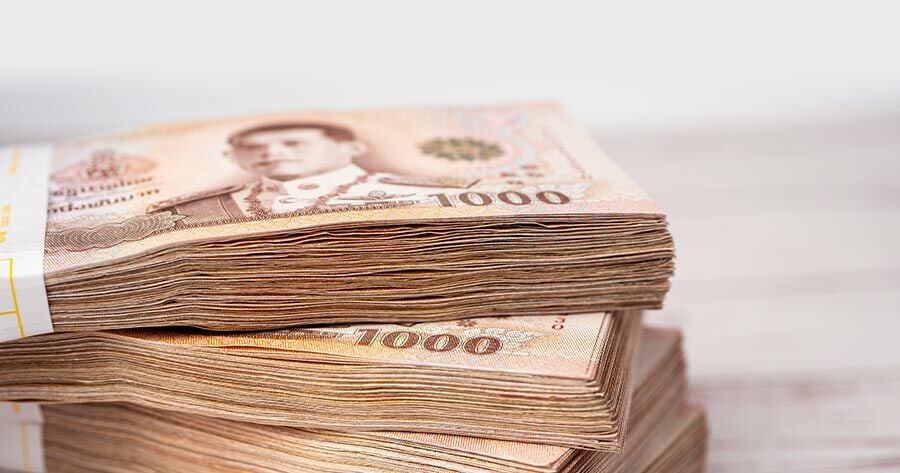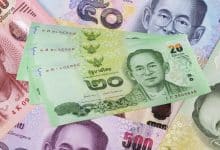Baht falls to three-month low as US inflation delays rate cut

The Thai currency hit a three-month low against the US dollar yesterday, February 14, slipping below 36 to the dollar. This was attributed to higher-than-anticipated US inflation, which led the market to predict a delay in the Federal Reserve’s first interest rate cut, initially expected in May.
Quoting Kasikorn Research Centre, the baht was valued at a low of 36.13 against the dollar before rising slightly from 36.07 to 36.09 baht. This is compared to Tuesday’s closing rate of 35.7 baht, said Kanjana Chockpisansin, head of research at the think tank.
“The baht is moving in line with other Asian currencies, as the world gold price also fell below US$2000 per ounce.”
The US dollar and bond yield experienced a sharp increase following the rise of the US consumer price index (CPI) by 3.1% year-on-year in January, beating the 2.9% market prediction. The core CPI also exceeded expectations, at 3.9% against a forecast of 3.7%, said Kanjana.
“Those readings might prompt the Fed to maintain rates for longer. The market now sees a lower probability of the Federal Open Market Committee’s first rate cut in May, only tallying 35%.”
Kanjana also suggested that the baht could weaken further with the slow decline of US inflation and strong economic data, indicating that the Fed might not cut rates as early as previously forecasted, reported Bangkok Post.
Baht weakening
According to Kobsidthi Silpachai, head of capital markets research at Kasikornbank, the US inflation figure was primarily driven by rising house prices. The market currently predicts that the Fed will only cut the policy rate four times this year, a decrease from the initial forecast of seven cuts.
As a result, the Thai and US interest rate gap will remain wider for a longer period, leading to a further weakening of the baht against the dollar, he said.
In terms of volatility against the US dollar, the baht ranks third among regional currencies at 9.56% over the past three months.
Poon Panitchpibul, a money market strategist at Krungthai Global Markets, anticipates the first Fed rate cut of the year in June, which will cause the baht to weaken further as the dollar strengthens. Krungthai projects the baht’s fluctuation to be between 35.66 to 36.10 to the dollar soon.
Kavee Chukitkasem, head of research and content at Pi Securities, highlighted that the high US inflation puts pressure on the prices of gold, Bitcoin, stocks, and debt instruments.
“Until the Fed’s meeting in May or June, we have to wait and see whether the central bank cuts rates.”
As a result, a significant stock market rebound is difficult to predict over the next few months. Pi projects the Thai index to move within the range of 1,350 to 1,400 points by mid-2024, according to Kavee.
Latest Thailand News
Follow The Thaiger on Google News:


























